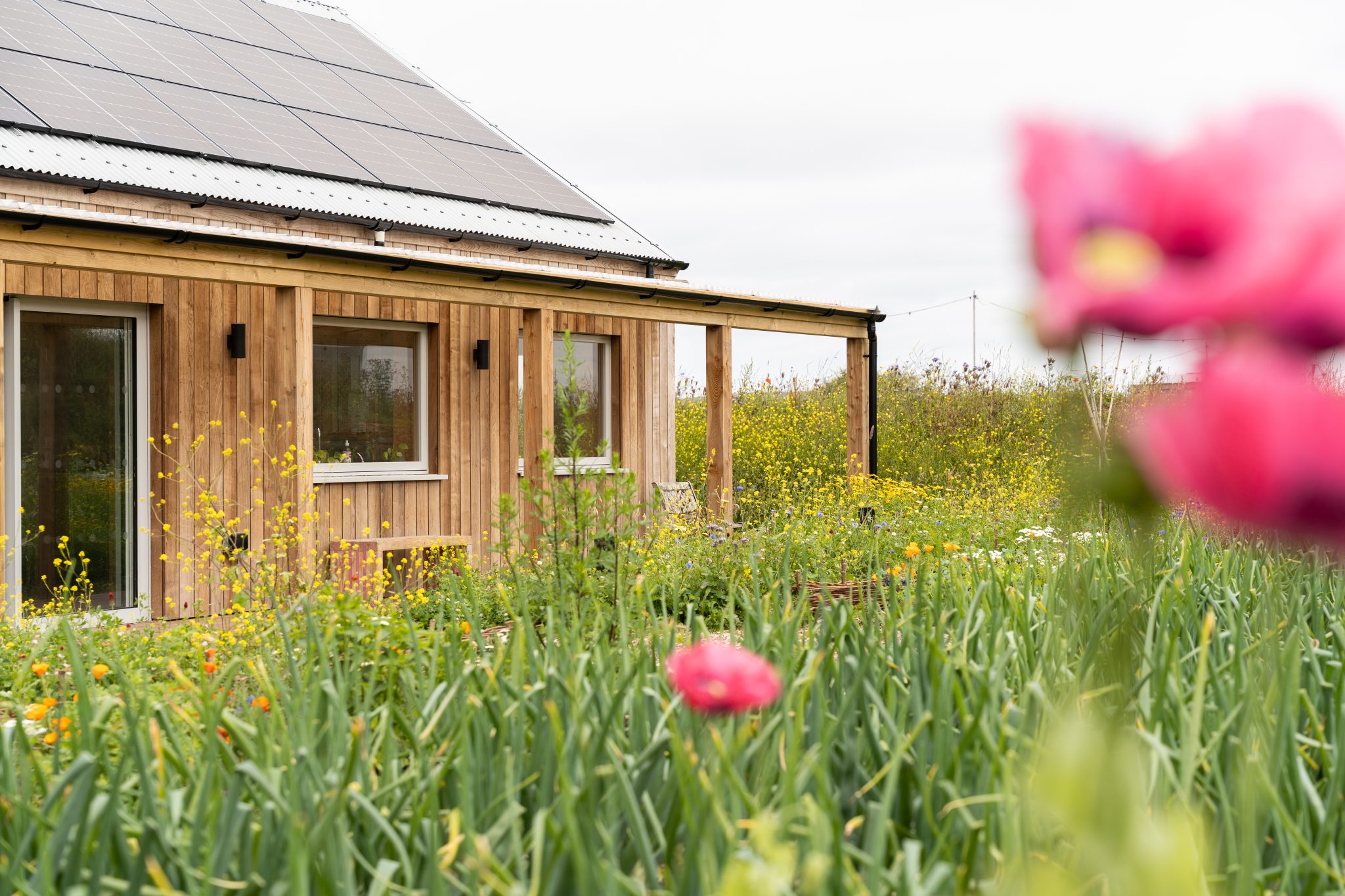
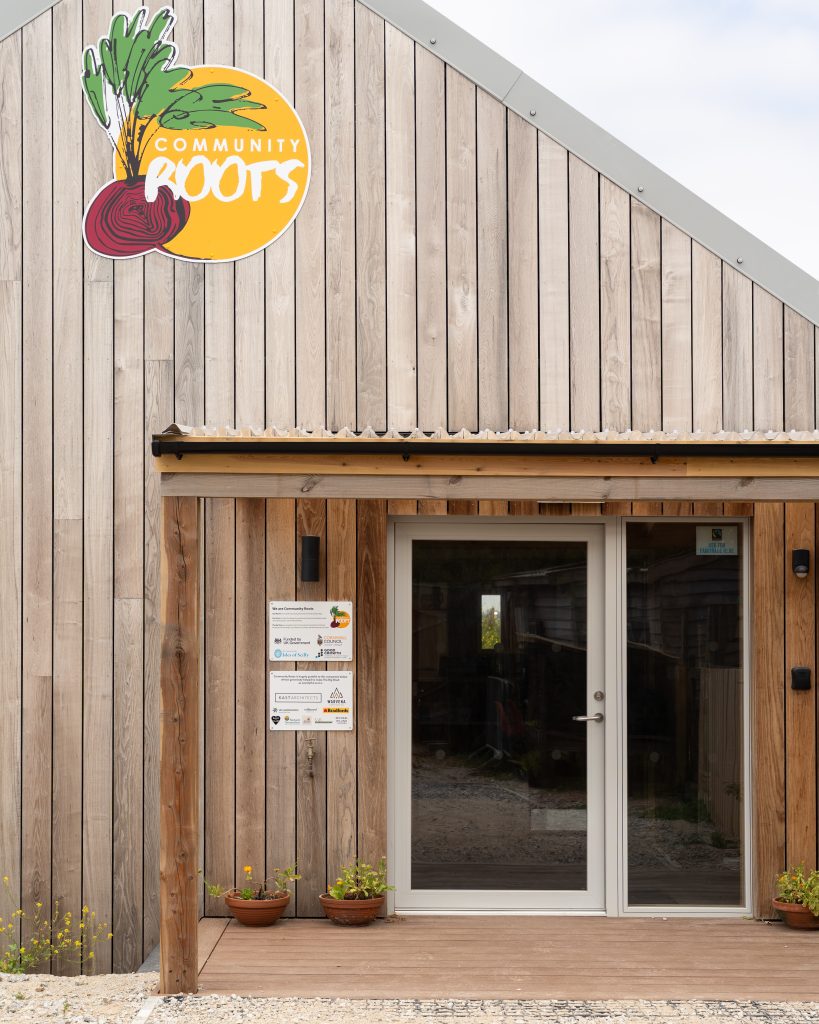
In collaboration with UK Hardwoods and our thermally modified cladding, KAST Architects were approached by Community Roots, a thriving community growing initiative on Cornwall’s north coast. Their vision was to create a sustainable building that would enable them to expand their market garden, where seasonal vegetables are grown and shared with the local community through weekly food bag subscriptions.
Affectionately named “The Big Shed”, the new structure sits beside the garden itself and its smaller neighbour, “The Little Shed.” A wide veranda, clad using our home grown thermally modifies ash provides a sheltered threshold between indoors and out, while a pair of sliding doors opens the building directly to the allotment. The space now flows effortlessly from soil to kitchen – a professional, fully equipped facility for cooking, classes, and preserving the harvest.
Accessibility was at the heart of the design. With step-free entry and a Changing Places WC, the building welcomes everyone to enjoy and engage with the garden. Alongside the main hall, there is also a modest office and dedicated vegetable storage, ensuring the space is as functional as it is inviting. The building is designed with a sustainable heart, and materials were at the forefront of the design by KAST. Our thermally modified cladding was chosen as a material for its excellent durability and unrivalled stability, lasting up to 60 years above ground.
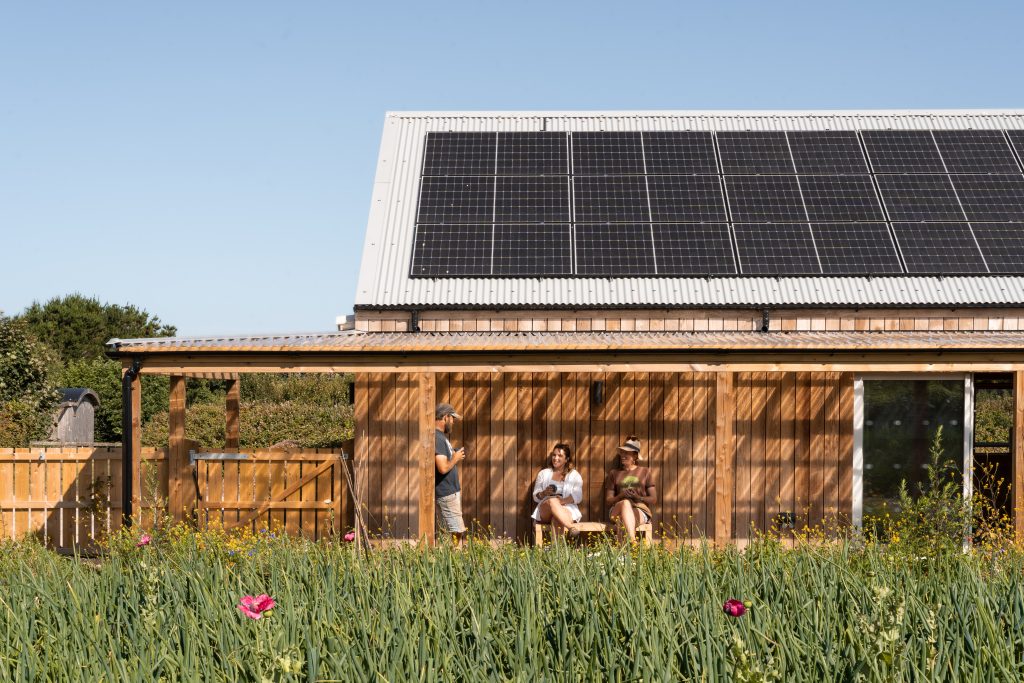
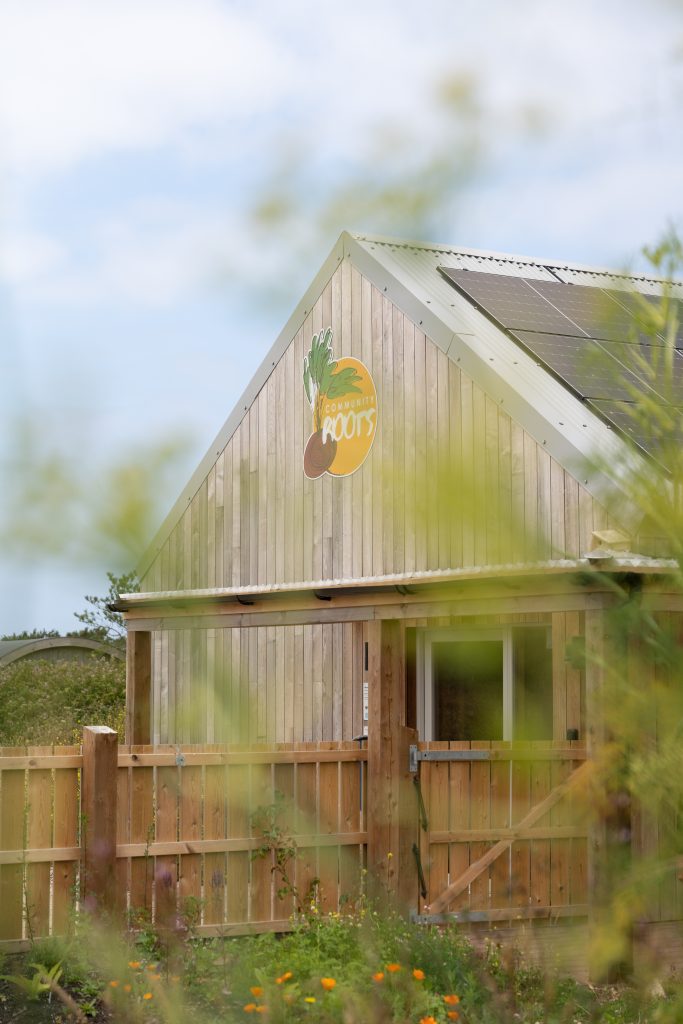
The exterior of The Big Shed showcases the exceptional qualities of thermally modified cladding, a sustainable and innovative material choice that perfectly aligns with Community Roots’ environmental values. Unlike traditional timber treatments that rely on chemical preservatives, thermally modified cladding achieves its enhanced durability through an entirely natural, chemical-free process. We use heat up to 210 degrees in a vacuum to denature the cells of the timber, therefore creating a hydrophobic wood cladding material that doesn’t absorb moisture like any other wood.
Thermal modification transforms ordinary timber into a highly durable, stable material using nothing more than heat and steam. The process involves heating wood to temperatures between 180°C and 230°C in a controlled, oxygen-depleted environment. This intense heat fundamentally alters the wood’s cellular structure at a molecular level, breaking down the hemicellulose that fungi and insects typically feed upon.
The beauty of thermally modified cladding lies in what it doesn’t contain. There are no toxic chemicals, no copper-based preservatives, no creosote, and no synthetic biocides. The entire transformation occurs through controlled exposure to high temperatures and carefully managed moisture levels. This chemical-free process makes thermally modified cladding an ideal choice for buildings where health, environmental responsibility, and food production intersect – such as The Big Shed.
The three-phase thermal modification cycle begins with a high-temperature drying phase, removing all moisture from the timber. The wood is then heated to peak temperature and held there for several hours, allowing the permanent structural changes to occur. Finally, a controlled cooling and conditioning phase stabilises the timber, preparing it for service. The result is wood that is naturally resistant to decay, dimensionally stable, and requires no ongoing chemical treatments or maintenance products.
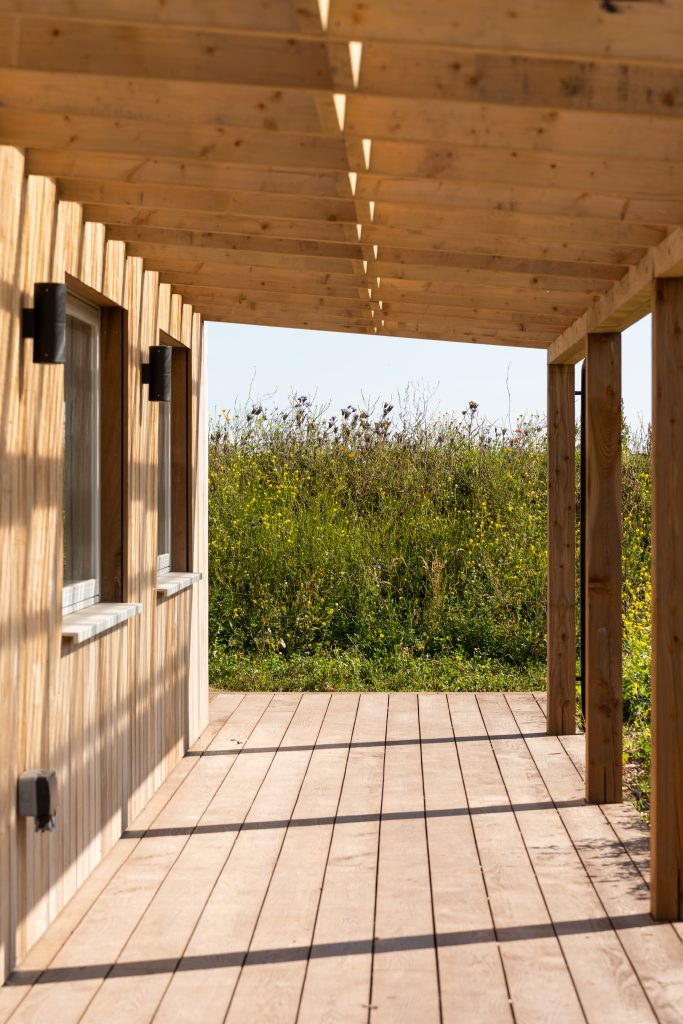
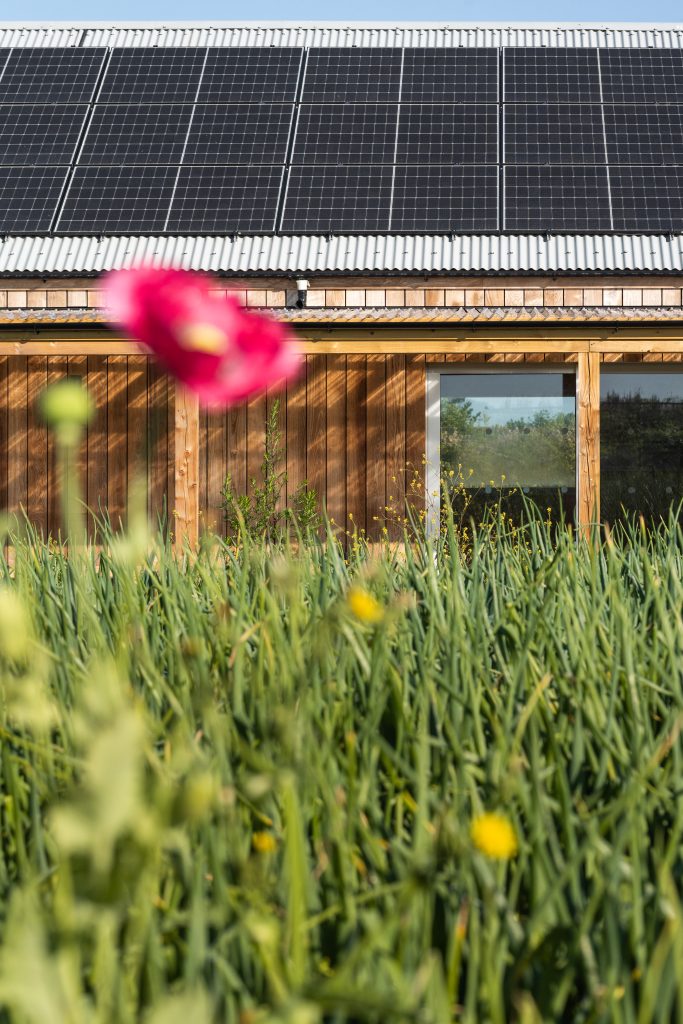
The design takes its cues from the simple, familiar form of a barn. The structure is entirely timber framed and clad in thermally modified Ash – all grown here in the UK. This choice of British-grown thermally modified cladding represents a significant commitment to local forestry, reduced carbon emissions, and supporting the domestic timber industry.
British Ash (Fraxinus excelsior) has long been valued for its strength, flexibility, and attractive grain patterns. By sourcing Ash from UK-managed woodlands, The Big Shed project dramatically reduces the transport miles associated with imported cladding materials. British timber comes with verifiable provenance and the assurance that it has been grown in sustainably managed forests operating under strict UK forestry standards. Our sawmill is also certified with Grown in Britain to provide you with maximum confidence in the traceability of our British timber.
Using UK-grown wood also significantly reduces the embodied carbon of the building. While imported hardwoods may travel thousands of miles by ship and truck, British timber requires only minimal transport from forest to mill to construction site. When that British timber is enhanced through the chemical-free thermal modification process rather than chemical preservation, the environmental benefits multiply.
When this homegrown hardwood undergoes thermal modification, it gains exceptional durability class ratings – often achieving Durability Class 1 or 2 – making it suitable for even the most exposed coastal environments like Cornwall’s north coast. The thermally modified cladding used at Community Roots in Cornwall will perform reliably for decades without rotting, warping, or requiring chemical retreatment.
This homegrown hardwood was carefully selected for its durability, low-maintenance performance, and rich character, offering a contemporary yet natural finish that will weather beautifully over time. The thermally modified cladding will develop a gradual silver-grey patina as it ages, creating a living facade that tells the story of its exposure to Cornwall’s coastal weather – salt-laden winds, driving rain, and bright maritime sunshine.
Above, a profiled metal roof with an array of south-facing PV panels provides renewable energy, while high levels of insulation and airtight construction deliver comfort and low running costs throughout the seasons. The combination of thermally modified cladding with these energy-efficient features creates a building envelope that performs exceptionally well while maintaining the natural, organic aesthetic appropriate to its agricultural setting.
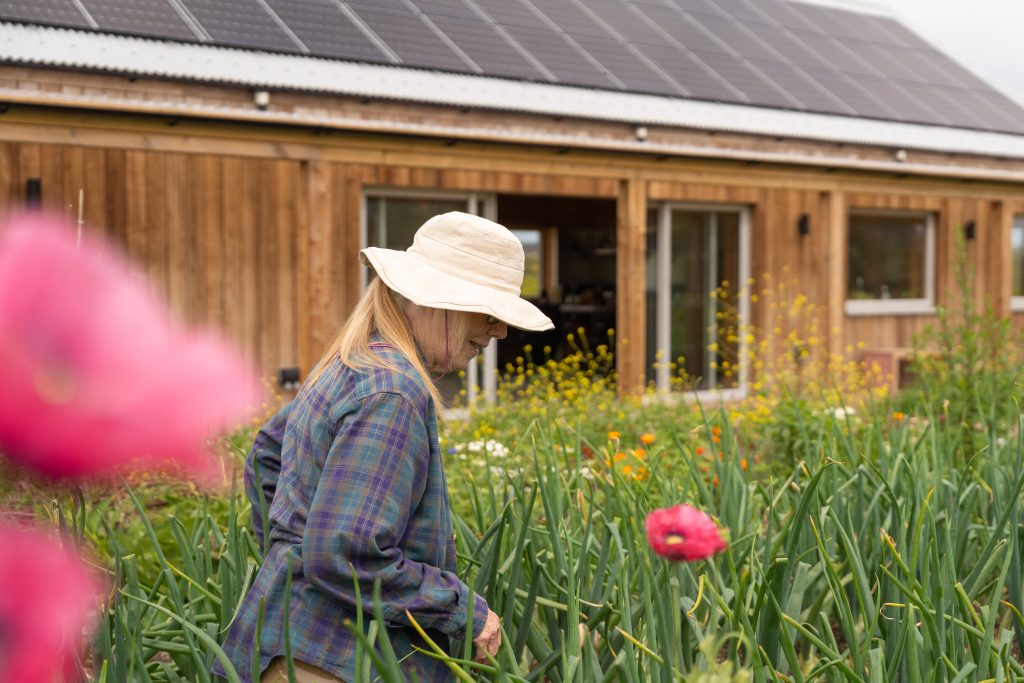
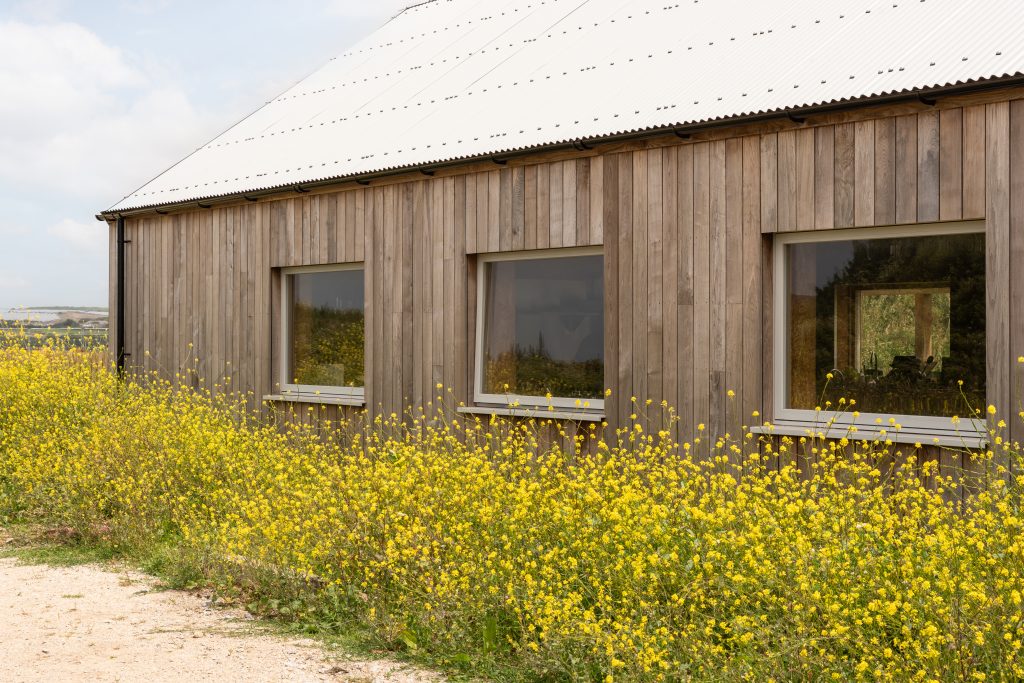
This beautiful Cornish project demonstrates the enormous potential of British-grown thermally modified cladding in contemporary architecture. As awareness grows about the environmental and health impacts of chemical timber treatments, thermally modified cladding offers a compelling alternative that compromises nothing in terms of performance, appearance, or longevity.
For architects, developers, and clients seeking genuinely sustainable cladding solutions, British thermally modified timber represents the perfect convergence of environmental responsibility, local economic support, chemical-free processing, and exceptional technical performance. The Big Shed stands as proof that these values can be built into reality – one board of UK-grown, thermally modified cladding at a time. Order samples here.
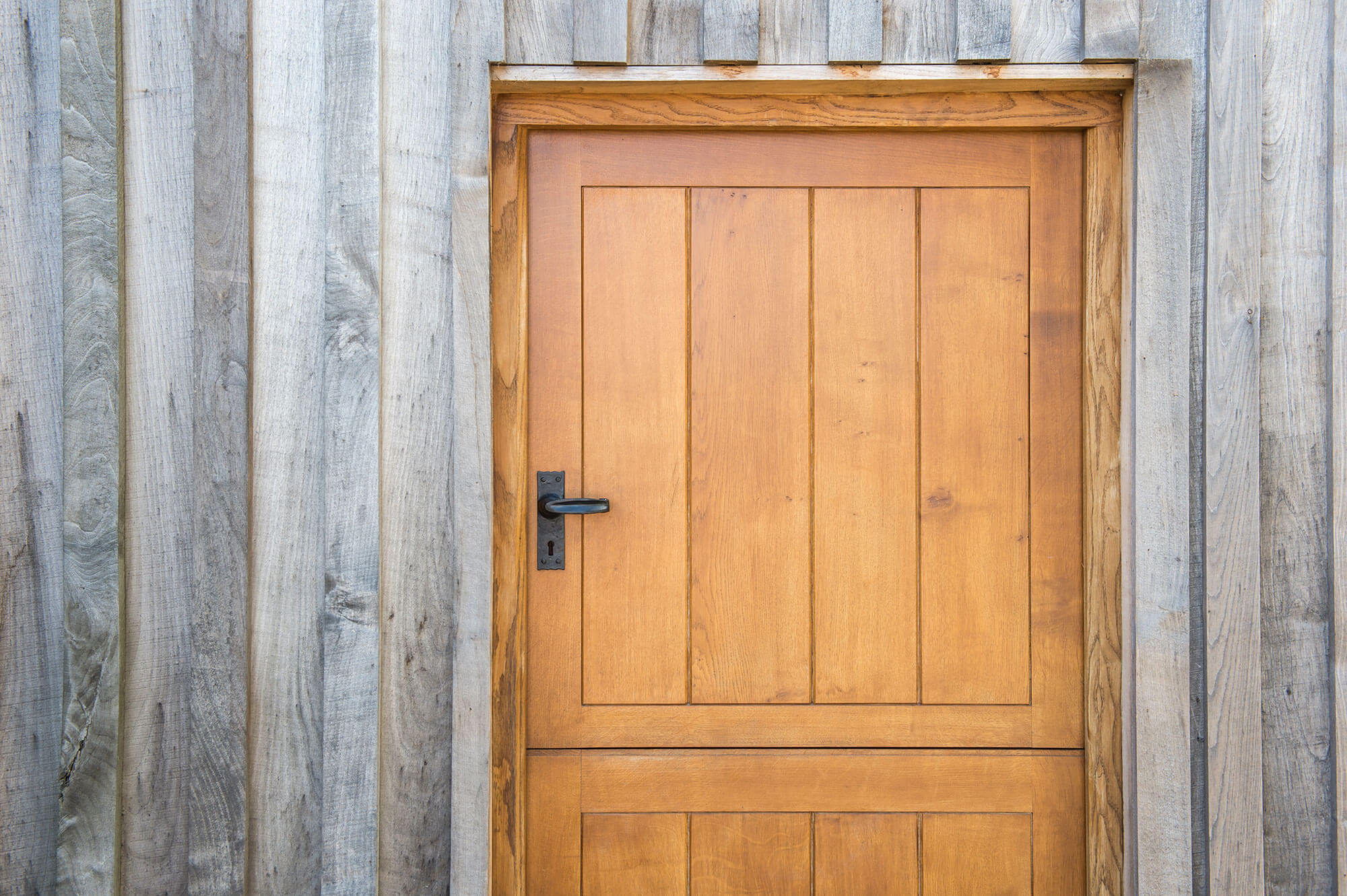
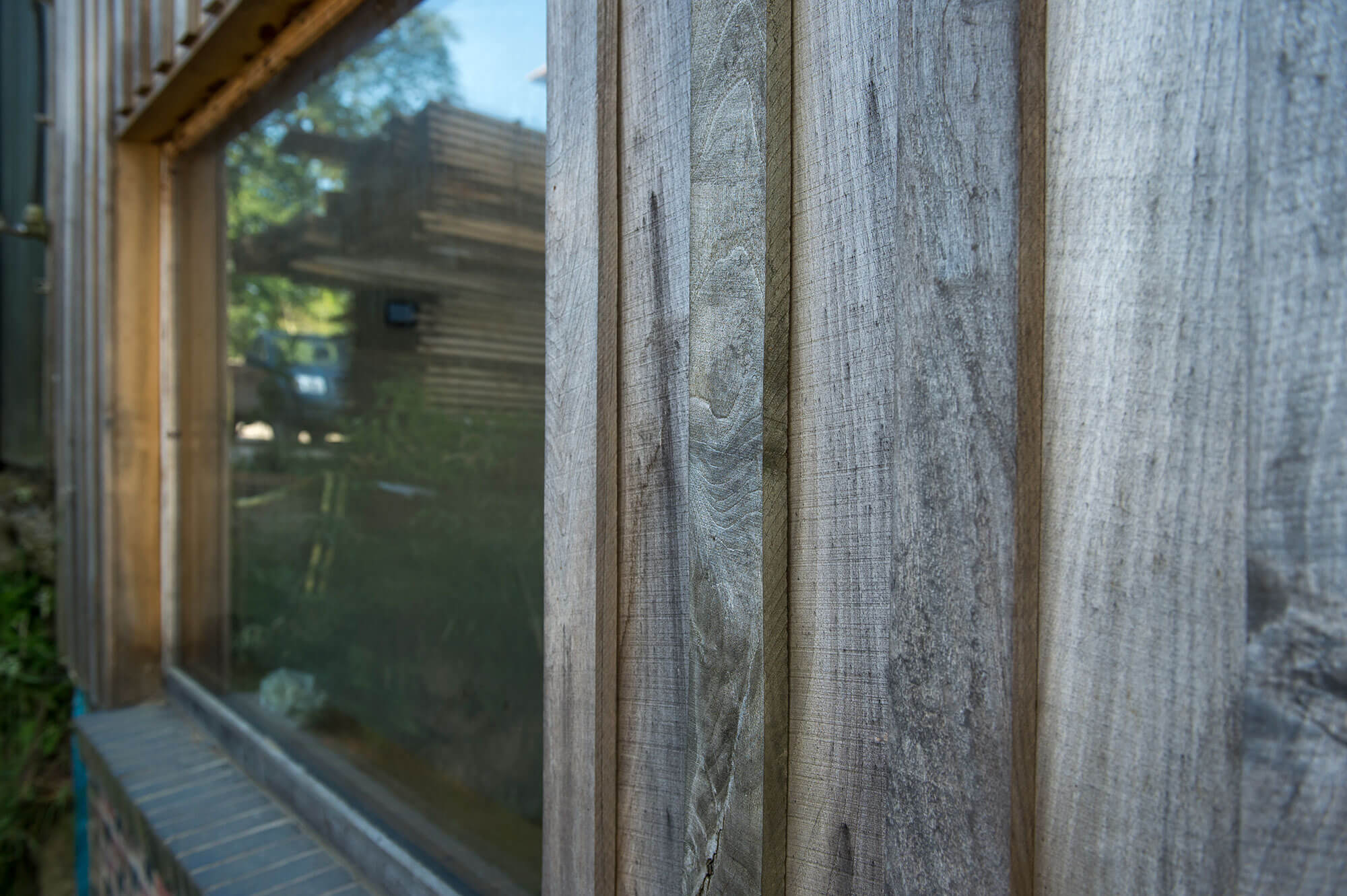
External Cladding
We can provide lap, castle and waney edge boarding and other cladding profiles for your exterior projects.
